4th Asian Monetary Policy Forum
The 4th Asian Monetary Policy Forum (AMPF) will be held on 26 May 2017 at the Shangri-La Hotel, Singapore. The forum brings together an exclusive group of high-level central bankers, academics and private sector analysts to share perspectives on pressing monetary policy issues in Asia. The AMPF is organized under the auspices of ABFER, with support from the University of Chicago Booth School of Business, the National University of Singapore Business School, and the Monetary Authority of Singapore (MAS).
The AMPF will commence on 25 May 2017 with a keynote speech and joint dinner with ABFER. The following day, on 26 May 2017, the program will kick off in the morning with an opening keynote address followed by a commissioned paper session. The afternoon agenda is a closed door moderated discussion comprising senior participation from prominent policymaker, central bankers, academic researchers, and private sector analysts.
Agenda
2017
Welcome Remark by Professor Tan Chorh Chuan
President of National University of Singapore and Chairman of Asian Bureau of Finance and Economic Research (ABFER)
Keynote Speech by Professor Raghuram G. Rajan
Katherine Dusak Miller Distinguished Service Professor of Finance, University of Chicago Booth School of Business
“Central Banking in the Current Era”
Q&A Session
Moderator:
Professor Steven J. Davis
William H. Abbott Professor of International Business and Economics, The University of Chicago Booth School of Business
2017
Venue: Jurong Ballroom, Shangri-La Hotel, Singapore
Chair:
Professor Bernard Yeung
Dean and Stephen Riady Distinguished Professor, NUS Business School and President of ABFER
Discussants:
Professor Andrew K. Rose
Bernard T. Rocca Professor, Haas School of Business, University of California, Berkeley and Exco Member and Senior Fellow of ABFER
Download Slides
Professor Assaf Razin
Professor Emeritus, Tel Aviv University
Download Slides
Panellists:
Mr Tharman Shanmugaratnam
Deputy Prime Minister and Coordinating Minister for Economic and Social Policies, Singapore
Dr Jacob A. Frenkel
Chairman of JP Morgan Chase International
Professor Raghuram G. Rajan
Katherine Dusak Miller Distinguished Service Professor of Finance, University of Chicago Booth School of Business
Moderator:
Professor Steven J. Davis
William H. Abbott Professor of International Business and Economics, University of Chicago Booth School of Business, Exco Member and Senior Fellow of ABFER
Guest-of-Honor
-
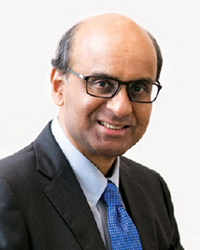
DPM Tharman Shanmugaratnam
Deputy Prime Minister and Coordinating Minister for Economic
and Social Policies in the Singapore CabinetDPM Tharman Shanmugaratnam is Deputy Prime Minister and Coordinating Minister for Economic and Social Policies in the Singapore Cabinet.
Tharman is also Chairman of the Monetary Authority of Singapore (MAS), Singapore’s central bank and financial regulator. He has spent his working life in public service, in roles related to education and economic policies. He served as Minister for Finance for eight years, over 2007- 2015, and as Minister for Education for five years (2003-2008). He was appointed Deputy Prime Minister in 2011.
Tharman was appointed Chairman of the Group of Thirty, an independent global council of leading economic and financial policy-makers, from Jan 2017, succeeding Jean-Claude Trichet. In Apr 2017, he was appointed as Chairman of the G20 Eminent Persons Group on Global Financial Governance, to review the system of multilateral financial institutions. He had previously been appointed by his international peers as Chairman of the International Monetary and Financial Committee (IMFC), the key policy forum of the IMF, for an extended period of four years from 2011; he was its first Asian chair.
Tharman led the ‘SkillsFuture’ programme, launched in 2014 with the aim of developing the skills of the future and broad-based opportunities for lifelong learning among Singaporeans. He subsequently chaired the tripartite Council for Skills, Innovation and Productivity (CSIP) until May 2017, which developed programmes to spur industry transformation and job upskilling across the economy.
After his schooling in Singapore, Tharman studied at the London School of Economics and Cambridge University. He later obtained a Masters in Public Administration at Harvard University, where he was named a Lucius N Littauer Fellow in recognition of outstanding performance.
- 1
Speakers
-
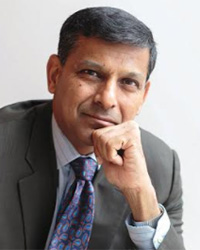
Professor Raghuram G. Rajan
Katherine Dusak Miller Distinguished Service Professor of Finance,
University of Chicago Booth School of BusinessRaghuram Rajan is the Katherine Dusak Miller Distinguished Service Professor of Finance at the Booth School of Business at the University of Chicago. He was the Governor of the Reserve Bank of India between 2013 and 2016, and also served as Vice-Chairman of the Board of the Bank for International Settlements between 2015 and 2016. Dr. Rajan was the Chief Economist and Director of Research at the International Monetary Fund from 2003 to 2006.
Dr. Rajan’s research interests are in banking, corporate finance, and economic development, especially the role finance plays in it. He co-authored Saving Capitalism from the Capitalists with Luigi Zingales in 2003. He then wrote Fault Lines: How Hidden Fractures Still Threaten the World Economy, for which he was awarded the Financial Times-Goldman Sachs prize for best business book in 2010.
Dr. Rajan was the President of the American Finance Association in 2011 and is a member of the American Academy of Arts and Sciences and the Group of Thirty. In 2003, the American Finance Association awarded Dr. Rajan the inaugural Fischer Black Prize for the best finance researcher under the age of 40. The other awards he has received include the Deutsche Bank Prize for Financial Economics in 2013, Euromoney magazine’s Central Banker of the Year Award 2014 and The Banker magazine's Global Central Banker of the Year award in 2016. -
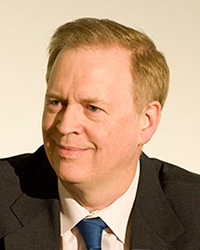
Professor Steven J. Davis
William H. Abbott Professor of International Business and Economics, University of Chicago Booth School of Business
Exco Member & Senior Fellow, Asian Bureau of Finance and Economic Research (ABFER)Steven J. Davis is the William H. Abbott Professor of International Business and Economics at the University of Chicago Booth School of Business. He studies business dynamics, labor markets, economic fluctuations, and public policy. He is past editor of the American Economic Journal: Macroeconomics, elected fellow of the Society of Labor Economists, senior academic fellow with the Asian Bureau of Finance and Economics Research, research associate with the National Bureau of Economic Research, advisor to the U.S. Congressional Budget Office, and consultant to the Federal Reserve Bank of Atlanta.
Davis is known for his influential work using longitudinal data on firms and establishments to explore job creation and destruction dynamics and their relationship to economic performance. He is a co-creator of the Economic Policy Uncertainty Indices at www.PolicyUncertainty.com and the DHI Hiring Indicators at http://dhihiringindicators.com. He co-organizes the Asian Monetary Policy Forum, held annually in Singapore. In 2013, he received the Addington Prize in Measurement for his research on “Measuring Economic Policy Uncertainty.”
His teaching experience includes Ph.D. courses in macroeconomics and labor economics at the University of Chicago, the Massachusetts Institute of Technology, and the University of Maryland; MBA courses in macroeconomics, money and banking, business strategy, and financial institutions for Chicago Booth; and executive MBA courses in macroeconomics for Chicago Booth in Barcelona, London, and Singapore. Davis has also taught undergraduate courses in microeconomics, econometrics, and money and banking at Brown University and the Massachusetts Institute of Technology.
In addition to his scholarly work, Davis has written for the Atlantic, Bloomberg View, Financial Times, Forbes, Los Angeles Times, and the Wall Street Journal and appeared on Bloomberg TV, Channel News Asia, CNBC, CNN, Fox News, NBC Network News and the U.S. Public Broadcasting System. -
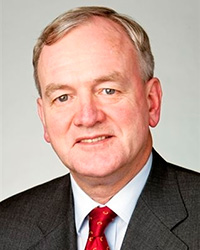
Dr. Willem Buiter
Chief Economist, Citigroup
Willem Buiter is Chief Economist at Citi since 2010. He taught at the LSE, and the universities of Princeton, Yale, Cambridge and Bristol. He was an external MPC member from 1997 till 2000 and Chief Economist at the EBRD from 2000 till 2005. He is married to Professor Anne Sibert.
-
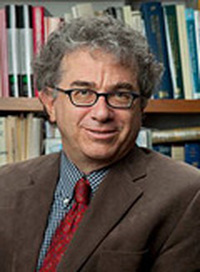
Professor Jeffrey Frankel
James W. Harpel Professor of Capital Formation and Growth, Harvard University
Jeffrey Frankel is James W. Harpel Professor of Capital Formation and Growth at Harvard University’s Kennedy School of Government. He directs the program in International Finance and Macroeconomics at the National Bureau of Economic Research, where he is also on the Business Cycle Dating Committee, which officially declares recessions.
He served at the Council of Economic Advisers in 1983-84 and 1996-99. As CEA Member appointed by President Clinton, Frankel's responsibilities included international economics, macroeconomics, and the environment. Before moving East, he had been Professor of Economics at the University of California, Berkeley, having joined the faculty in 1979. His research interests include international finance, currencies, monetary and fiscal policy, commodities, regional blocs, and global environmental issues. His most cited papers are: “The Endogeneity of the Optimum Currency Area Criteria” (with Rose, 1998) and “Does Trade Cause Growth?” (with Romer, 1999). He was born in San Francisco, graduated from Swarthmore College, and received his Economics PhD from MIT.
Source: https://www.hks.harvard.edu/fs/jfrankel/ -
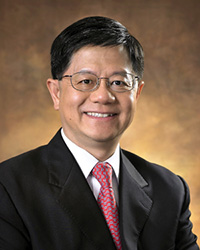
Professor Bernard Yeung
Dean and Stephen Riady Distinguished Professor in Finance and Strategic Management, National University of Singapore
President, Asian Bureau of Finance and Economic Research (ABFER)Bernard Yeung is the Dean and Stephen Riady Distinguished Professor in Finance and Strategic Management at National University of Singapore (NUS) Business School. Before joining NUS in June 2008, he was the Abraham Krasnoff Professor in Global Business, Economics, and Management at New York University (NYU) Stern School of Business. He has also served as the Director of the NYU China House, the honorary co-chair of the Strategy Department of the Peking University Guanghua School of Management, and Advisory Professor at the East China Normal University. From 1988 to 1999, he taught at the University of Michigan and at the University of Alberta from 1983 to 1988.
Professor Yeung`s research work has featured in more than 100 research publications covering topics in finance, strategy, foreign direct investment, international trade, international macroeconomics, institutional economics, sustainability, and economic history. His articles have appeared in journals in the fields of economics, finance, strategic management, international business, and accounting, as well as in top-tier media publications such as The Financial Times and The Wall Street Journal. He has contributed chapters in many leading books and written working papers.
He has also won several scholarly honours and awards for academic excellence, including the Irwin Outstanding Educator Award (2013) from the Business Policy and Strategy (BPS) division of the Academy of Management; the Excellence in Teaching Award (Executive Education) by Stern School of Business at NYU and Teacher Excellence Award (doctoral programmes) by University of Michigan Business School.
In addition, Professor Yeung has served on various committees and international advisory boards. He was a member of the Economic Strategies Committee in Singapore chaired by Mr Tharman Shanmugaratnam, Minister for Finance (2009). The committee was given the task of developing strategies for Singapore to build capabilities and maximise opportunities as a global city. Professor Yeung is also a member of several other committees, including the Management Advisory Committee of SPRING Singapore and the Financial Research Council of the Monetary Authority of Singapore.
Professor Yeung sits on the International Advisory Board of the Korea University Business School, the Intellectual Property of Singapore, the Institute of System Science Management Board, and the Strategic Recruitment Advisory Committee at NUS. He is the Dean Director on the Graduate Management Admission Council (GMAC) Board. He was also a member of the Maintenance of Accreditation Committee (MAC) and Asia Advisory Task force (AATF) of the Association to Advance Collegiate Schools of Business (AACSB). He is also an elected Fellow of the Academy of International Business (AIB).
Professor Yeung received his Bachelor of Arts in Economics and Mathematics from the University of Western Ontario and his MBA and PhD degrees from the Graduate School of Business at the University of Chicago. -
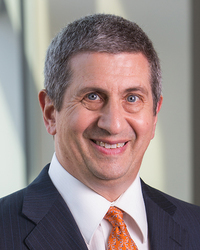
Professor Andrew K. Rose
B.T. Rocca Jr. Professor of International Business, Haas School of Business, University of California, Berkeley
Exco Member & Senior Fellow, Asian Bureau of Finance and Economic Research (ABFER)Andrew K. Rose is the B.T. Rocca Jr. Professor of International Business in the Economic Analysis and Policy Group, Haas School of Business at the University of California, Berkeley. He is also a Research Associate of the National Bureau of Economic Research (based in Cambridge, MA), a Research Fellow of the Centre for Economic Policy Research (based in London, England), and a Senior Fellow of the Asian Bureau of Finance and Economic Research (based in Singapore). He received his Ph.D. from the Massachusetts Institute of Technology, his M.Phil. from Nuffield College, University of Oxford, and his B.A. from Trinity College, University of Toronto.
Rose has published over one hundred and fifty papers and over ninety articles in refereed economics journals, including the American Economic Review, the Quarterly Journal of Economics, the Review of Economic Studies, and the Journal of Finance. His research addresses issues in international trade, finance, and macroeconomics, and has received more than 40,000 citations. His teaching is in the areas of international macroeconomics; he has won two teaching awards.
Rose served as Associate Dean for Academic Affairs and Chair of the Faculty 2010-2016, and was the managing editor of The Journal of International Economics 1995-2001. He and the founding director of the Clausen Center for International Business and Policy at Haas and the Risk Management Institute at the National University of Singapore. He has organized over fifty academic conferences.
Rose is interested in the theory and practice of economic policy, and most of his work is applied and driven by "real world" international phenomena. A citizen of three countries, he has worked on six continents and at a number of international economic agencies, including: the International Monetary Fund, the World Bank, and the Asian Development Bank. He has also worked at a number of national agencies, including: the US Department of Treasury, HM Treasury (UK), the Canadian Department of Finance; and the central banks of: Australia, Canada, England, Europe, Hong Kong, Israel, Italy, Japan, Netherlands, New Zealand, Singapore, Spain, and the United States. He has visited a number of other universities, including Cape Town, EUI, FUB, INSEAD, London School of Economics, Melbourne, NUS, Princeton, SHUFE, SMU, Stockholm, Tel Aviv, Tsinghua, ULB, and Victoria. -
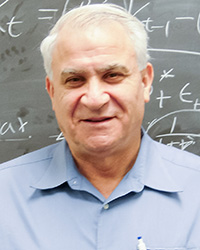
Professor Assaf Razin
Professor Emeritus, Tel Aviv University
Assaf Razin was born in Kibbutz Shamir in 1941. He is a member of the Faculty of Economics at Cornell University in New York and professor emeritus at Tel Aviv University. He has a BA and MA in Agricultural Economics from the Rehovot branch of Hebrew University, and an additional MA in economics and a doctorate in economics from the University of Chicago. Razin taught at the University of Minnesota and then at Tel Aviv University, and also served in several administrative posts in that institution: Chairman of the Economics Department, Dean of the Faculty of Social Sciences, 1981-1986, and Deputy Provost 1993-1994.
In 2001 he joined the Cornell University faculty. He has served as a guest lecturer at many universities across the United States: the University of Chicago, Harvard University, Princeton University, Northwestern University, UC Berkeley, Yale University and Stanford University. He likewise taught at the London School of Economics and the University of Munich. Professor Razin served as a consultant in various institutions: the International Monetary Fund; the Bank of England; the Bank of Israel and the Honk Kong Monetary Authority. In 1979, he served a short time as Director of the Economic Planning Authority in the Ministry of Finance. In addition, he served as President of the Israel Economic Association and as External Director of Bank Yahav and of the First International Bank of Israel. Razin has written 20 books and has published numerous articles in the world’s leading scientific journals, such as the American Economic Review, the Journal of Political Economy, the Quarterly Journal of Economics, and Econometrica. His most recent publications include two books: "Understanding Global Crises--An Emerging Paradigm" (2015) and, "Israel and the World Economy--Power of Globalization" (2017, forthcoming), both published by MIT. -
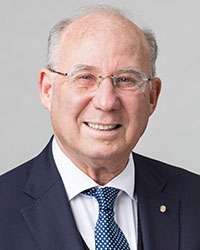
Dr. Jacob A. Frenkel
Chairman, JPMorgan Chase International
Jacob A. Frenkel is Chairman of JPMorgan Chase International and a member of the J.P. Morgan International Council. He also serves as Chairman of the Board of Trustees of the Group of Thirty (G-30) which is a private, nonprofit, Consultative Group on International Economic and Monetary Affairs.
Dr. Frenkel served from 2001 to 2011 as Chairman and CEO of the G-30, from 2004 to 2009 as Vice Chairman of American International Group, Inc., and from 2000 to 2004 as Chairman of Merrill Lynch International, as well as Chairman of Merrill Lynch’s Sovereign Advisory and Global Financial Institutions Groups. Between 1991 and 2000 he served two terms as the Governor of the Bank of Israel. He is credited with reducing inflation in Israel and achieving price stability, liberalizing Israel’s financial markets, removing foreign exchange controls, and integrating the Israeli economy into the global financial system.
Between 1987 and 1991, he was the Economic Counselor and Director of Research at the International Monetary Fund, and between 1973 and 1987 he was on the faculty of the University of Chicago where he held the position of the David Rockefeller Professor of International Economics and served as Editor of the Journal of Political Economy.
He is a Fellow of the Econometric Society, a Foreign Honorary Member of the American Academy of Arts and Sciences, a member of the Board of Trustees of the New York Economic Club, a member of the Board of Directors of the National Bureau of Economic Research, of the Japan Society, and of the Peterson Institute for International Economics, a member of the Trilateral Commission, a member of the Boards of the Aspen Institute Italia and The Council for the US and Italy, a member of Temasek International Panel (TIP), and a member of the International Advisory Council of China Development Bank. He is also a member of the Board of Directors of Boston Properties, Inc. and Loews Corporation.
Dr. Frenkel is a Laureate of the 2002 Israel Prize in Economics, a recipient of the Scopus Award from the Hebrew University, the Hugo Ramniceanu Prize for Economics from the Tel-Aviv University, the Czech Republic’s Karel Englis Prize in Economics, the “Order de Mayo al Merito” (in the rank of Gran Cruz) decoration from the Government of Argentina, the “Order of Merit” (in the rank of Cavaliere di Gran Croce) decoration from the Republic of Italy, and the YIVO Lifetime Achievement Award. He is also a recipient of several Honorary Doctoral degrees and other decorations and awards, including the “1993 Economic Policy Award” by “Emerging Markets” and the “1997 Central Banker of the Year Award” by “Euromoney”.
Dr. Frenkel serves as Chairman of the Board of Governors of Tel Aviv University. He previously served as Chairman of the Board of Governors of the Inter-American Development Bank (1995-1996), as Vice Chairman of the Board of Governors of the European Bank for Reconstruction and Development (1999-2000), as Governor of the IMF and Alternate Governor of the World Bank for Israel (1991-2000), and a member of the Economic Advisory Panel of the Federal Reserve Bank of New York (1986-2014).
Dr. Frenkel is the author of numerous books and articles in the fields of International Economics and Macro-Economics. Dr. Frenkel holds a B.A. in economics and political science from the Hebrew University of Jerusalem, and an M.A. and Ph.D. in economics from the University of Chicago.
- 1
Organizers


